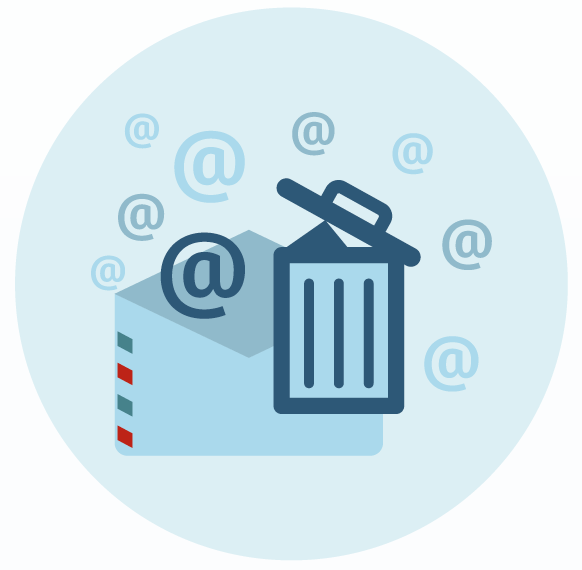Tips to avoid phishing scams
October is National Cybersecurity Awareness Month. All month long, we'll be promoting a safer, more secure, and more trusted internet.
Each week has a theme. The theme for Week One (October 2-6) is Simple Steps to Online Safety.
Be web-savvy, don't get hooked by a phish
Cyber criminals try to compromise your information with links – links in your email, tweets, online advertising, or posts. Ignore suspicious links and be wary of giving out out your personal information. Only open attachments if you're expecting them and know what they contain. If an email or website is making you an offer that sounds too good to be true, it probably is.
Phishing is when cyber criminals send an email or use a website to try to get you to share personal or financial details. Sometimes they have you click a link and put malware onto your device.
Tips for avoiding phishing
- Don’t respond to emails that don’t look legit. Follow up with the company directly instead of clicking the link.
- Check for spelling or grammar mistakes in the email. Phishing hackers also try to use a sense of urgency to get you to act — don’t fall for it.
- Look at the URL (the website address). Does it start with https://? You want to make sure you see the S for secure! Is there something that isn’t spelled right, or extra info? For example, if it says boston.gov.pl ...that’s the wrong address.



